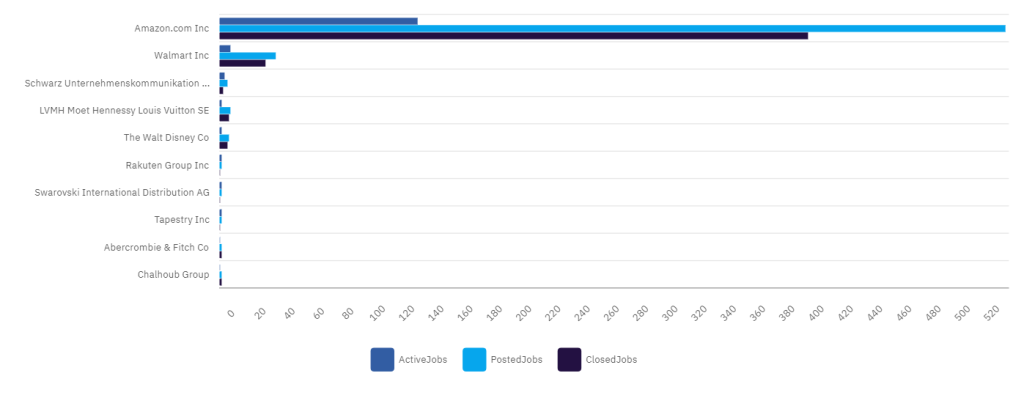
2023 was the breakout year for generative AI with use cases emerging across the fashion sector, and it has the potential to augment, accelerate and automate fashion business capabilities — from writing code to amplifying the creative process.
According to McKinsey & Co’s latest report, the overall financial impact of gen AI on the fashion industry is significant, with as much as a quarter of the value expected to be driven by use cases at the design and product development stage of the value chain.
The Business of Fashion-McKinsey State of Fashion 2024 Survey of global fashion executives found 73% of fashion executives said generative AI will be a priority for their businesses in 2024, but less than a third (28%) have tried using it in creative processes for design and product development.
McKinsey suggests this highlights fashion companies are not yet capturing its value in the creative process.
The report reads: “Caution is understandable. The technology could impact jobs and workflows. The fashion industry has also seen a fair share of technological
enthusiasm that has swiftly sputtered — notably, the metaverse.”
Last year started with much enthusiasm for the metaverse, which has since died off, however McKinsey’s report suggests generative AI has more practical applications, making it more attractive to businesses and investors.

US Tariffs are shifting - will you react or anticipate?
Don’t let policy changes catch you off guard. Stay proactive with real-time data and expert analysis.
By GlobalDataFor example, equity funding for generative AI-focused start-ups have skyrocketed, reaching $14.1bn in the first half of 2023 alone, compared to just $2.5bn in 2022.
What are the benefits of generative AI to the fashion sector?
The fashion sector’s focus on generative AI so far has been on one-off use cases with cost, efficiency or customer experience advantages. But the technology also offers the potential for wider industry disruption.
AI is already making its mark in online shopping assistance, with online retailer Zalando announcing the launch of a beta ChatGPT-based natural language-powered shopping assistant earlier this year that allows online customers to ask questions and get answers as well as customised product recommendations.
US fashion conglomerate Kering and online marketplace Shopify have also introduced AI chatbots, with brands such as Adore Me, the lingerie
company recently acquired by Victoria’s Secret, using the technology to write product descriptions for their sites.
The report adds: “Ultimately, the greatest value may lie in using gen AI in an end-to-end way that enables and enhances creativity.”
For example, in fast fashion, gen AI could accelerate the design process, inject more agility from trend detection to product development and leverage analytics data to rapidly produce large numbers of new designs. Spanish brand Desigual has already launched an on-demand collection, designed using AI tools.
The companies developing generative AI software for the fashion sector claim the technology can reduce manual tasks that should take days to mere hours or even seconds.
The new technology could free designers from manual tasks, allowing them to focus on creative work. Human designers will remain key, while generative AI will enable their roles to be oriented around curation, according to the report.
However, the report also notes a word of caution: “This potential must be communicated clearly to creatives to ensure the technology is adopted without undermining the role of the designer.”
It continues: “When implemented effectively, the technology can benefit and amplify the creative process, thus augmenting human capability, while retaining the artistic skills and knowledge of designers. Ultimately, say experts, human-centred innovation will likely be the most important use of AI.”
The rise of generative AI-based jobs within the fashion sector

Source: GlobalData
GlobalData’s jobs database suggests over the last three years (December 2020 to December 2023) interest in employing individuals for generative AI has grown.
Online giant Amazon is leading the way with 537 jobs posted over the time period, followed US supermarket retailer Walmart with 38 jobs posted.
Other companies exploring generative AI roles, according to GlobalData include luxury US fashion conglomerate Tapestry and US fashion brand Abercrombie & Fitch.
Our signals coverage is powered by GlobalData’s Thematic Engine, which tags millions of data items across six alternative datasets — patents, jobs, deals, company filings, social media mentions and news — to themes, sectors and companies. These signals enhance our predictive capabilities, helping us to identify the most disruptive threats across each of the sectors we cover and the companies best placed to succeed.


